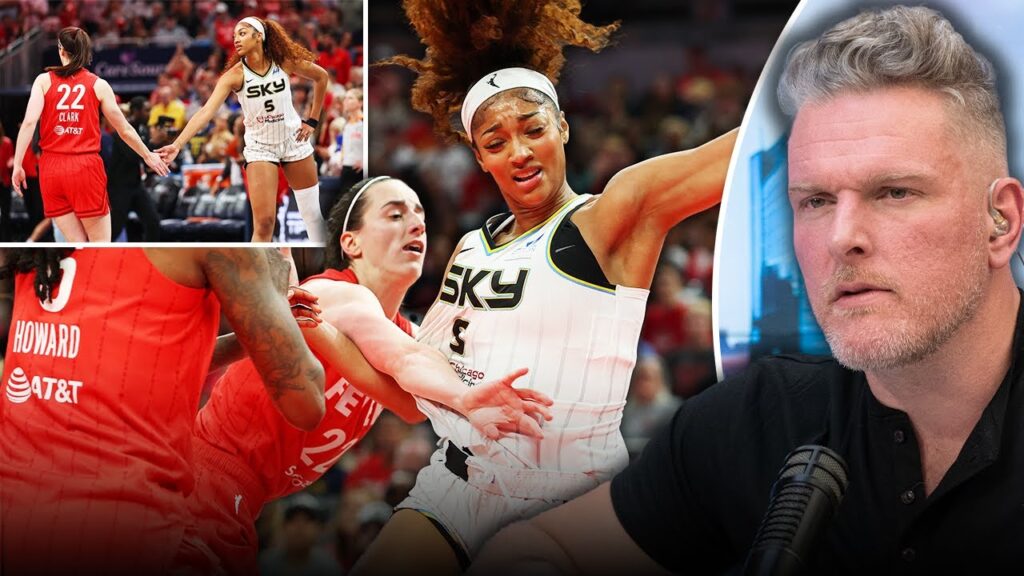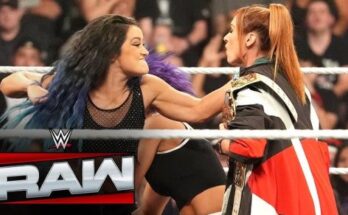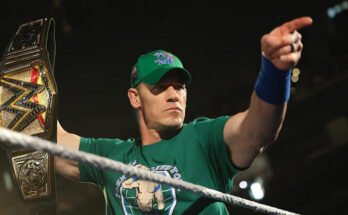
The WNBA spotlight is burning brighter than ever, but not all of it is for the right reasons. Following a heated on-court incident between Indiana Fever rookie Caitlin Clark and Chicago Sky forward Angel Reese, the league has found itself at the center of a national conversation—not just about basketball, but about drama, rivalry, and how far is too far. The debate reached a boiling point after Clark committed a hard foul on Reese during a high-profile matchup, sparking outrage across social media and drawing attention from fans, players, and media personalities alike—including Pat McAfee.
On The Pat McAfee Show, the crew dove headfirst into the controversy, discussing the foul, the growing rivalry between Clark and Reese, and what the drama means for the WNBA. “Is this good or bad for the league?” McAfee asked his panel. “Because Caitlin Clark is clearly moving the needle, but now we’ve got a bunch of people arguing about fouls, race, respect, and whether this is turning into the NBA-style drama people either love or hate.”
Clark, the former Iowa standout and NCAA all-time leading scorer, has entered the WNBA with enormous fanfare—and equally enormous scrutiny. Every play, every foul, every stare-down is dissected under a microscope. After her foul on Reese—who has her own massive following dating back to their college rivalry—critics accused Clark of being reckless and even “dirty,” while others defended the rookie as simply playing tough, physical basketball.
The league assessed the foul as common, and no suspension or fine was issued. But the public reaction didn’t calm down. “Let’s be honest,” McAfee said. “This isn’t just about a foul. It’s about how much attention Caitlin Clark is bringing to the W, and how people are reacting to her—both positively and negatively.”
Former athletes and analysts weighed in on the show, pointing out that the growing rivalries are reminiscent of early NBA storylines—when Magic and Bird, or Jordan and the Bad Boys, brought energy (and controversy) to the court. Some argue the Clark-Reese rivalry is fueling interest in the league, especially among fans who never watched a WNBA game before.
But others are concerned the drama is overshadowing the game itself. “We’re talking more about tweets, fouls, and who’s clapping in whose face than we are about actual basketball,” one guest said. “It’s great that people are watching, but what are they watching for?”
McAfee, never one to shy away from strong opinions, said, “This might be exactly what the WNBA needs—some edge, some narrative, something to hook people in. But at the same time, if the story becomes more about drama than performance, that could backfire.”
Angel Reese herself addressed the incident postgame, saying, “I’m used to this. This ain’t new. I play hard, I expect others to do the same. I’m not here to be anyone’s villain—I just want to win.” Clark declined to comment on the foul specifically, but emphasized her focus on improving and helping the Fever build chemistry.
As the WNBA continues to grow in visibility, the question remains: Can it handle the heat that comes with fame, rivalries, and the ever-intense spotlight of social media?
One thing’s for sure—everyone’s watching now. And that, whether it comes with criticism or not, is something the league hasn’t seen at this level before.


